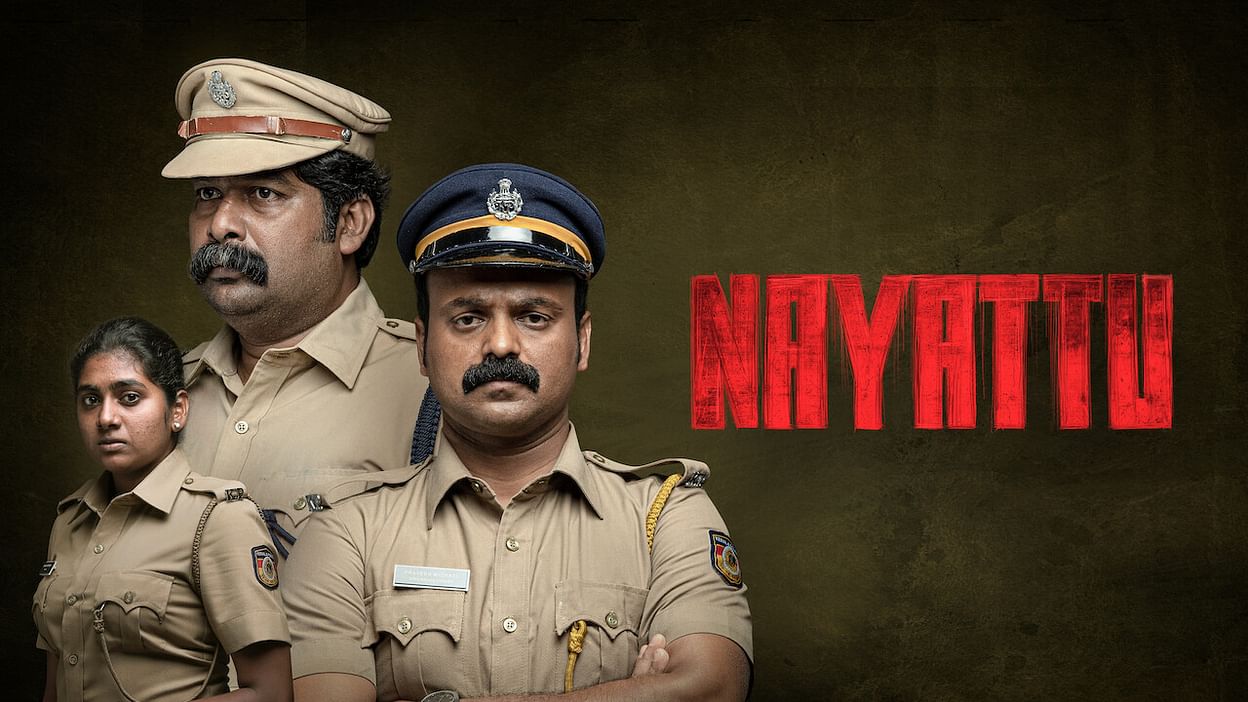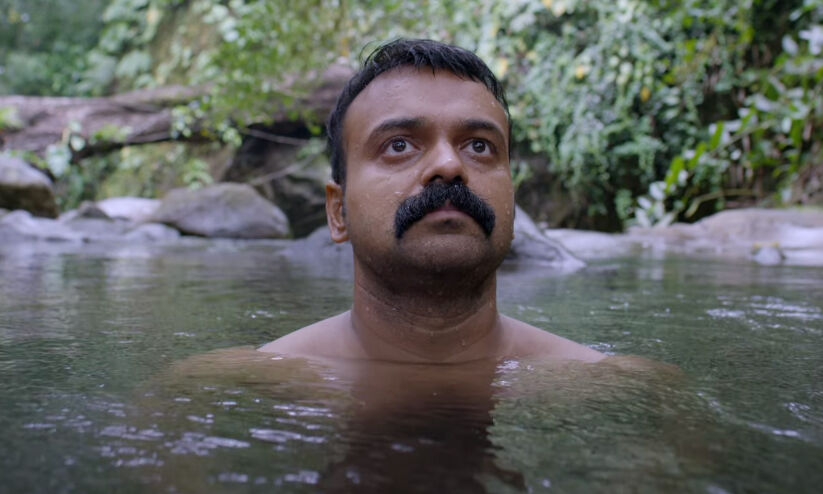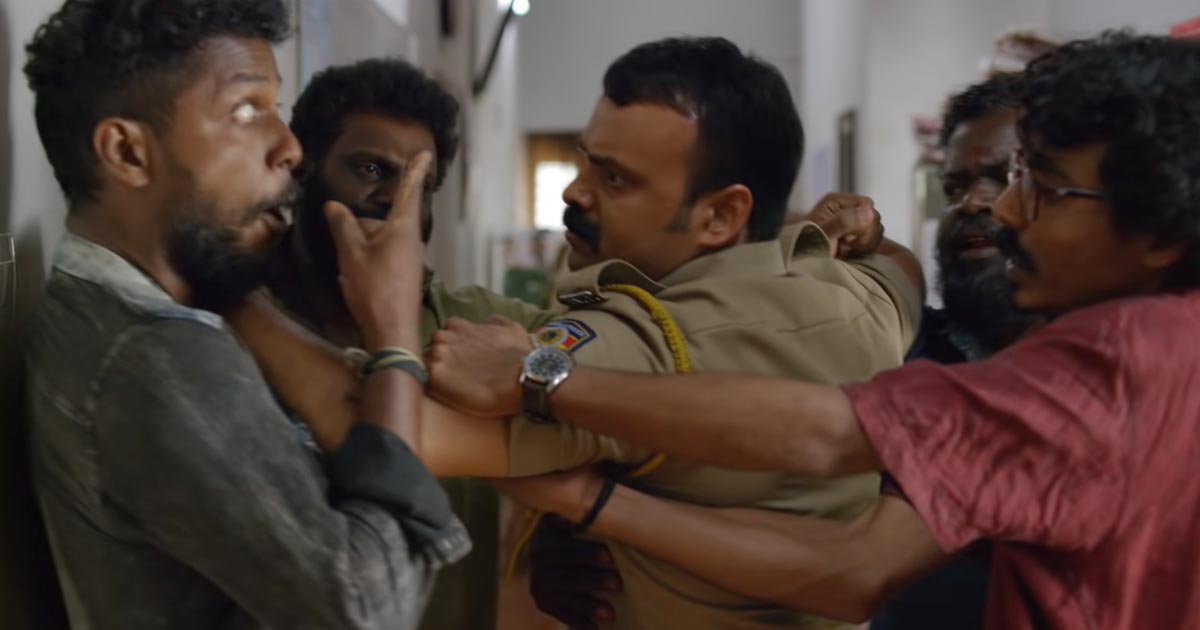‘Nayattu’ (2021), directed by Martin Prakkat, is a Malayalam crime-thriller starring Kunchako Boban, Joju George and Nimisha Sajayan in the lead roles. The plot of the film is centred around three police officers who go into hiding when they are involved in an accident with a dalit man. It is election season in Kerala and no matter what happens, the missing police officers have to be found so that the Chief Minister does not lose his votes from the dalit community who, in the narrative, is shown to have enough power to potentially “boycott” the elections. The rest of the film shuttles between scenes of protests organised by the dalit associations demanding justice for Jayan, the hunt for the police officers in hiding, and a pressurised chief minister who does everything in his power to not lose his vote-base.

To show dalitness in dalits by detaching them and their experiences from their oppressor and the caste hierarchy as a whole, is a recurring and tiring pattern that appears in Savarna discourse and spaces. Another example of this is the 2019 Hindi film ‘Article 15’, directed by Anubhav Sinha. Attempts are made to “neutralise” the caste-Hindu by removing nuances of caste from him. Focus remains on portraying the dalit-bahujan as the continuously affected subject (or victim) of caste as if it caste were a malaise that spread only amongst them. As if what the victims of caste needed was a saviour from “above” to show them the “caste-less” way.
In ‘Nayattu’, there are four dalit characters:
Sunitha, a dalit police officer played by Nimisha Sajayan, seems to have almost no important dialogues in the movie, and is significant only in two aspects. First, to draw a link to Biju (who is also her relative), as it is her harassment complaint against him that brings him to the police station, even though nothing regarding the harassment is spoken about at all throughout the film. The harassment seems to be important only in terms of who did it, instead of her experience of it as a dalit woman. Second, to become a potential love interest for Praveen (Kunchacko Boban) so that their chemistry allows Praveen’s character a space to flaunt his “gentlemanliness” towards her (buying her sanitary pads, keeping her warm when she is cold etc.) more than allowing Sunitha’s character a space to develop at all.
Although, when the camera focuses on her while the two men fight with each other, one expects the plot to shift its perspective and redeem itself by unveiling more of her narrative as a dalit woman. But with a panic attack and a consoling Praveen, the scene comes to a close. Sunitha and her experiences as a dalit woman are are yet another lost opportunity for the film.
ASI Maniyan, played by Joju George, is also someone whose dalitness can only be found in his name and the portrait of Ambedkar in his home. Merely throwing in a portrait of Ayyankali or of Ambedkar does not make a character to justice to representation of dalit identity.

The other dalit characters are Biju and Jayan. Both Biju and Jayan are part of a dalit organisation that seems to have a unconvincingly larger-than-life power over the ongoing elections. Biju’s character is shown to be crass, violent and aggressive. He doesn’t seem to need a portrait of Ambedkar or Ayyankali to showcase his dalitness. It seems that a simple portrayal of his “violent”mannerisms would do. All other characters are made to seem “free of caste”.

This is only a savarna-fed illusion. On the contrary a dalit remains a dalit because a Brahmin made himself a Brahmin. It is because caste advantages the caste-Hindu that the savarna is able to oppress. Caste did not already exist as a biological phenomenon (like race) so that the dalits could be oppressed (or discriminated) on the “basis of it”. Rather, caste is a social construct, a creation of the caste-Hindu, created in order to oppress.
Yet, for many, caste is equated with either:
- Reservations— a government policy of affirmative action.
- Untouchability— which they believe is only practised in rural areas.
- Vote-bank politics.
These are all products of caste. A product or side effect of caste is usually (perhaps, deliberately) mistaken to be caste itself. And if any of these products threaten their position of power (like reservation), the caste-Hindus call for its destruction, so that they can go back to practising the indirect, invisible caste-violence that they carry out every day.
When it comes to its caste-consciousness, Nayattu engages with just the vote-bank politics angle of caste, and not caste as a whole. But even then, their idea of a dalit vote-bank or of dalit politics seems to be very shallow and devoid of any real dalit historicity. By overly portraying a dalit organisation, in activist Vishnu Vijayan’s words, “as a powerhouse that can bargain with an entire government as a vote-bank” and can go as far as to even suspend police officers, the film attributes an unrealistic political power to dalit-bahujan and thus glosses over the institutionalised state violence they are subject to on a daily basis. To unhistorically place a dalit character in a film by detaching them from their oppressor (which is to detach them from their active oppression) is to do brutal injustice to dalit lives and struggles. It is a violation of history and truth itself.
By showing “neutral” characters like Praveen, his family, Maniyan’s family, Sunitha’s mother and the other police officers etc undergo difficulties because of a dalit man’s death and the political scenario that follows, the antagonist in the movie is made to be the vote-bank politics itself. Making vote-bank politics the antagonist may imply that Biju and Jayan (and even his death) are also antagonists or enemies of the state. The accidental death of Jayan which is turned into a political movement by the organisation, yet again, is another attempt to falsely portray dalit rage and activism as a non-sensical show of vandalism in the name of caste.
By making ASI Maniyan the “good” or “better” dalit, he is contrasted to Biju, the “bad” dalit, who spits on the wall, is poor, is an alleged harasser, and is associated with anger and violence throughout the plot. ASI Maniyan is a nationalist by profession. There is no way he can become an enemy of the state even if he is a dalit, because he serves the very state that oppresses him. He is a loving father who emphasises, time and again, the importance of family. The scene where he gifts a large amount of money to his niece and buys things for his daughter without considering the expenses also implies that he is someone who loves abundantly. By portraying Biju as the “bad” dalit, the movie negates and denies the struggled of livelihood for a dalit person, that is rooted in caste— drug abuse, alcohol abuse, poverty, denial of proper education and profession etc. While Biju is a real victim of caste-violence, the portrayal of Maniyan’s character in the movie implies that being “good” or “bad” is a choice, and is free of caste. The film paints the image of an ideal dalit who the state is ready to tolerate while characters like Biju only spell trouble.
The only scene in which a historicity is associated with Biju’s dalitness is when he tells Praveen, “the days of bowing down are over” when Praveen refuses to pick up the phone from the floor and give it back to him. Such a statement by a dalit man in response to a police officer is far from reality in the caste-ridden, dalit-hating society we live in. Moreover, despite such a statement made by Biju addressing his oppressor, the neutral, white-washed and “caste-free” Praveen doesn’t become the antagonist. Neither does caste. It is Biju still.
If caste is not the antagonist in a film that attempts to engage with caste, then the film does gross injustice to everyone who disadvantages because of caste, and speaks in favour of those who are advantaged by it, henceforth, re-polishing a 3000 year old caste hierarchy and shamelessly passing it on to the future generations so they can continue to feed on it and keep the cycle of oppression well and alive.
A film that tries to show dalitness as a societal problem, which if not dealt with properly, would leave to major upheavals in state politics is more than just a “casteist” movie. It is savarna-consciousness warning their brethren to watch their enemies closely. A savarna-consciousness that is simply scared of— an awakening and enlightenment of the oppressed.




